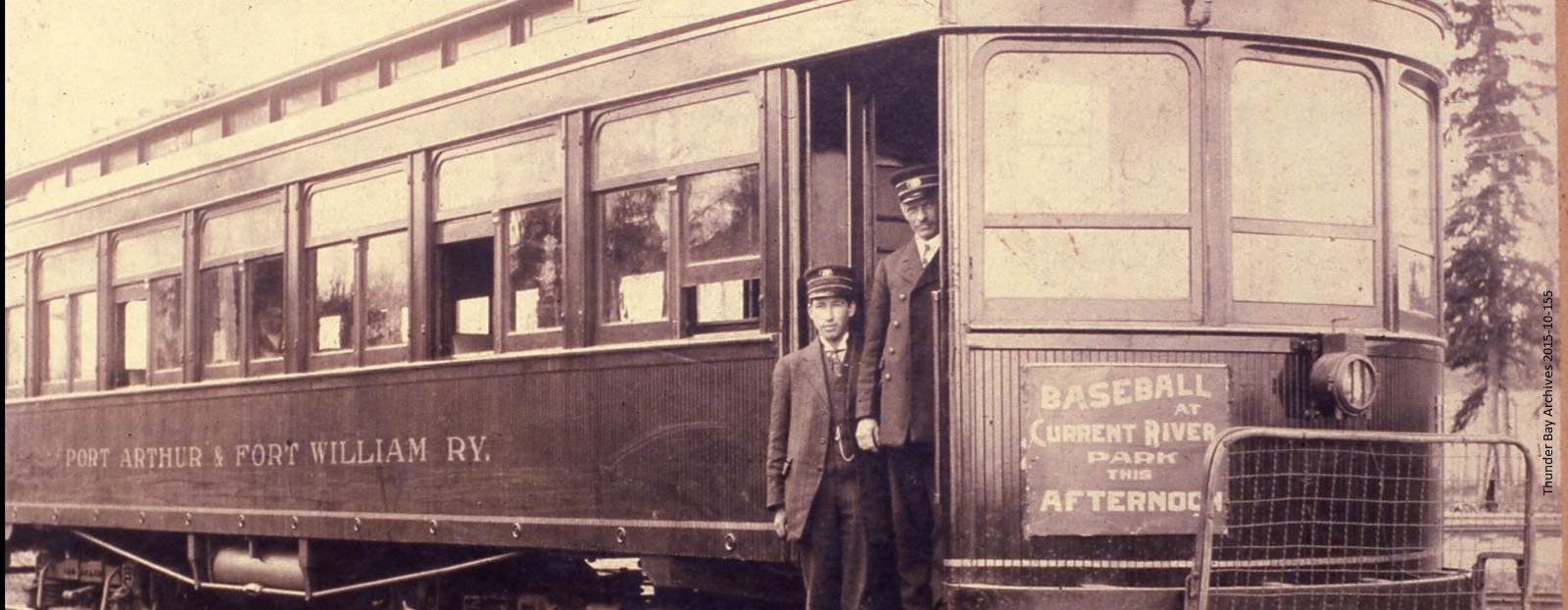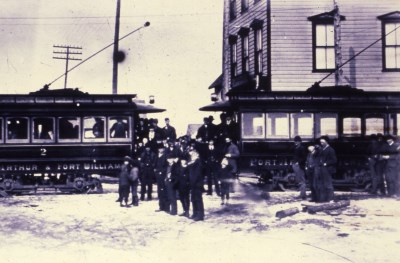 Public transit in Thunder Bay began in Port Arthur in 1892 with the introduction of the electric street railway system. While the building of the street railway created conflict among prominent politicians and businessmen, it also ignited a civil rivalry between the towns of Port Arthur and Fort William, one that would last for decades. The electric street railway marked the beginning of public transit in Thunder Bay, and was a landmark as the first publicly owned civic railway in North America.
Public transit in Thunder Bay began in Port Arthur in 1892 with the introduction of the electric street railway system. While the building of the street railway created conflict among prominent politicians and businessmen, it also ignited a civil rivalry between the towns of Port Arthur and Fort William, one that would last for decades. The electric street railway marked the beginning of public transit in Thunder Bay, and was a landmark as the first publicly owned civic railway in North America.
Public transportation in the Thunder Bay region evolved to adapt to the changing times in Canada, by introducing the Brill Trolley bus after the Second World War to maintain declining industrial jobs in the region. The growing popularity of the personal automobile, after the 1950s, prompted further reshaping within the public transit departments of the two towns.
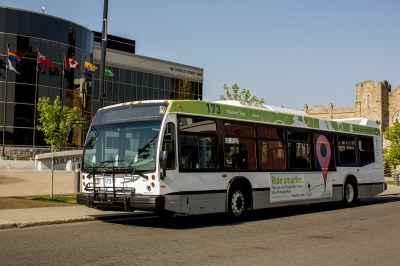 By 1971, the last electric trolley was taken off the road, signalling the end of the electric transit era in the region. With the introduction of diesel buses and the amalgamation of two cities, Thunder Bay Transit went through an overhaul to allow the public transportation system to service two city centres, an intercity area, and massive rural, residential, and industrial areas. Through constant improvement, Thunder Bay Transit has continued to progress to serve the diverse needs of this Northwestern Ontario city with 2017 marking 125 years of service.
By 1971, the last electric trolley was taken off the road, signalling the end of the electric transit era in the region. With the introduction of diesel buses and the amalgamation of two cities, Thunder Bay Transit went through an overhaul to allow the public transportation system to service two city centres, an intercity area, and massive rural, residential, and industrial areas. Through constant improvement, Thunder Bay Transit has continued to progress to serve the diverse needs of this Northwestern Ontario city with 2017 marking 125 years of service.
| The Early Years 1890s-1940s | 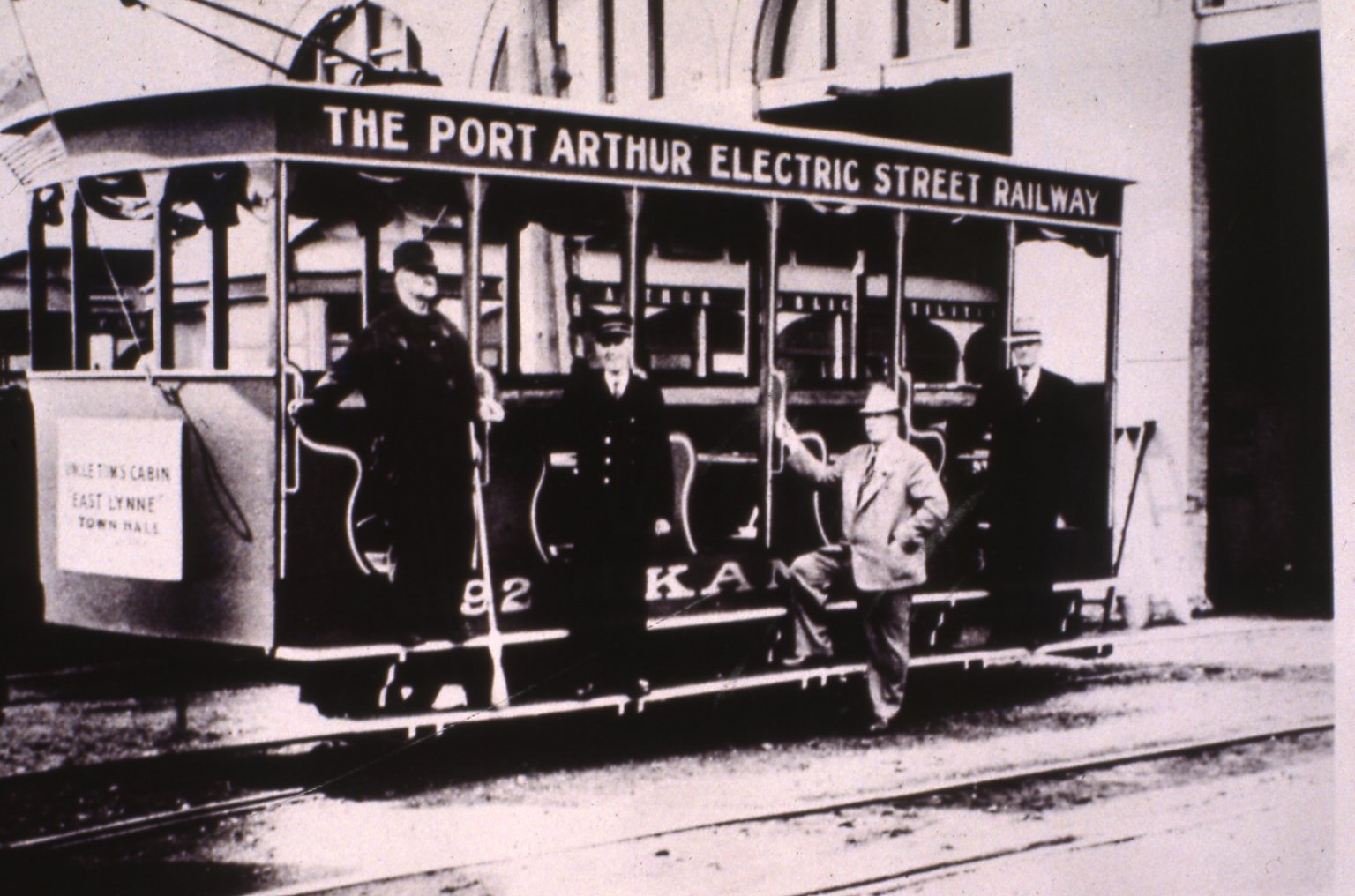 |
| Post-War Innovation 1940s-1970s | 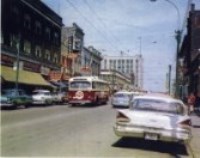 |
| Amalgamation: Uniting Two Systems 1970s-1990s | 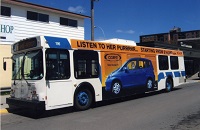 |
| Looking Forward 1990s-2017 | 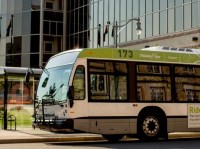 |
|
|
|
| Evolution of TBT Routes | 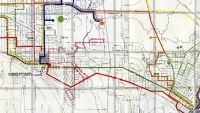 |
About this exhibit
This exhibit details the history of public Transit in the City of Thunder Bay.
The exhibit was created using records available to the public from the City of Thunder Bay Archives. Information and support have also been provided by Thunder Bay Transit. The textual records seen in this exhibit cover the time period from 1892 to 2017, and the photographic images range from 1870 to 2017.
Archival series referred to in this exhibit include the following:
- Fort William City Clerk’s Files (Series 4)
- Fort William Annual Reports (Series 16)
- Port Arthur Public Utilities Commission Files (Series 88)
- Port Arthur Public Utilities Reference Files (Series 102)
- Thunder Bay City Co-ordinator Files (Series 112)
- Thunder Bay City Clerk's Files (Series 117)
- City Manager’s Files (Series 412)
- Transit Operational Files (Series 456)
For more information on the history of Thunder Bay Transit, or any other subject of interest, please visit or contact the City of Thunder Bay Archives.
Some personal information has been removed to protect the privacy of individuals.
The funding for this exhibition was received, in part, from the Young Canada Works program administered through the Canadian Council of Archives. The financial assistance is appreciated.
Every precaution has been taken to ensure that copyright has been cleared for images used in this exhibit. If you have any concerns, please contact the City of Thunder Bay Archives.
Please note that the documents in the exhibition reflect the time period in which they were created. For the sake of authenticity, these images and textual documents have not been altered. The statements reflected in them are not necessarily the viewpoints held by the City today.
|
|
 |
Contact Us


